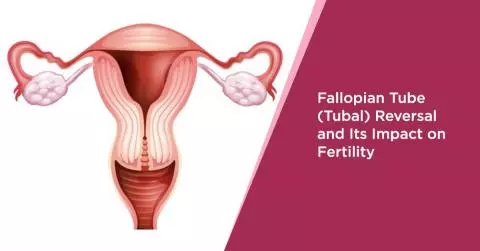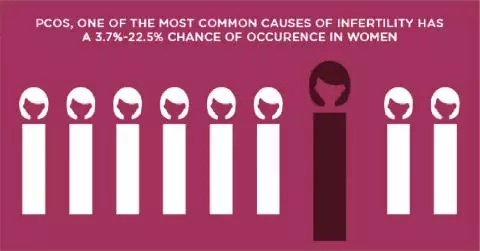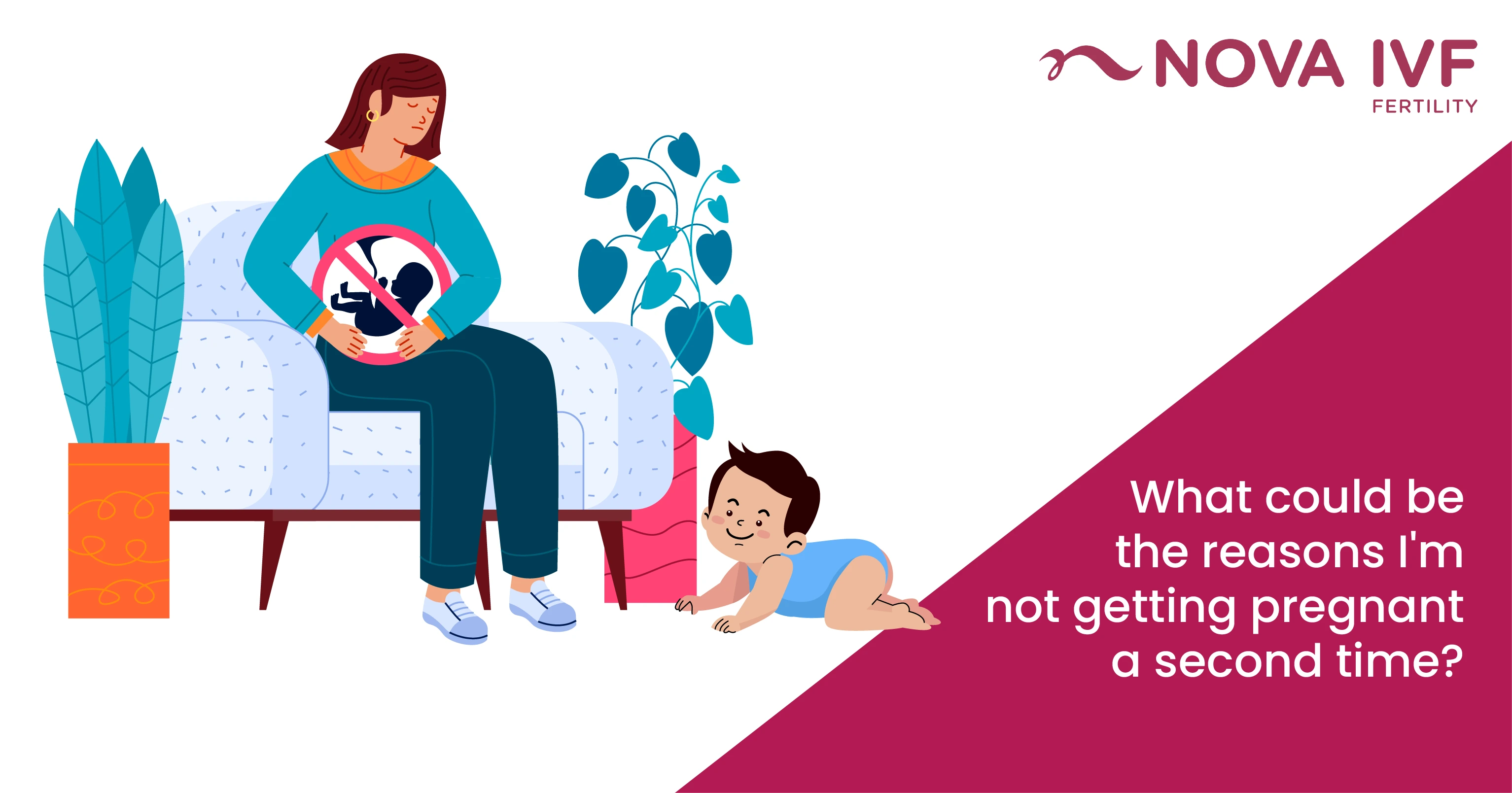Fallopian Tube Reversal: Impact on Fertility Explained

Nova IVF Fertility gives you another chance at conceiving even after tubal ligation (a surgical procedure for female sterilization), through the Assisted Reproductive Technology of Tubal Reversal.
Introduction:
India is slowly breaking free from taboos and stigma associated with infertility. Today, increasingly more infertile couples are addressing the issue of infertility as a mainstream disorder. Infertility is now being treated as any other common disease which needs medical intervention and attention. Nova IVF Fertility is the best IVF clinic that addresses such issues and provides concrete solutions using advanced Assisted Reproductive Technology (ART) services.
Many women who had previously undergone a tubal ligation are now looking to conceive a child by undergoing a fallopian tube (tubal ligation) reversal. Nova IVF Fertility is one of the best IVF clinics that performs this procedure.
What Is Assisted Reproductive Technology (ART)?
Assisted Reproductive Technology (ART) refers to the treatment of infertility-related issues through medical intervention and surgical procedures. ART aims to help increase the chances of conceiving and undergoing a successful pregnancy.
Some examples of Assisted Reproductive Technology (ART) procedures include:
- IVF or In-Vitro Fertilization Embryo Transfer
- Frozen Embryo Transfer
- Intracytoplasmic Sperm Injection
- Intrafallopian Transfer
- Tubal Ligation Reversal
- Surrogacy
In addition to the above procedures, Nova IVF Fertility also addresses issues related to male infertility as well, using modern techniques. They also have qualified counselors on board that guide patients through the process.
Understanding Fallopian Tube Reversal Or Tubal Ligation Reversal
In the procedure of a Tubal Ligation Reversal (also known as Tubal Reanastomosis), the fallopian tubes that were cut/blocked and tied previously, are reconnected using Laparoscopic surgical procedures. This allows the fertilized egg to pass into the uterus again. This allows for successful embryo transfer and implantation.
This surgery is performed using a Laparoscope while the patient is put under general anaesthesia. The entire procedure takes around 2 to 3 hours.
Eligibility and factors that must be considered for this procedure
The factors to be kept in mind before opting for this procedure include:
-
Age:
The ideal average age for women choosing to opt for this procedure is under 40 years. For women above 40 years of age, the success rate is low, although not completely ineffective.
-
The type of tubal ligation surgery undertaken previously:
You must be aware of the extent of damage to the fallopian tubes during the ligation surgery. Patients whose fimbriae (ends of the fallopian tubes) had been removed during ligation are unsuitable for the reversal. The doctor will be able to confirm this by looking into the previous medical records and then provide suitable advice.
-
BMI and overall reproductive health:
Having a BMI of 32 or below is best suited for this procedure. Other factors like endometriosis, the presence of scar tissue or fibroids may also affect the decision to go ahead with this procedure. The overall health of one’s ovaries and uterus are also to be considered.
-
The present condition of the fallopian tubes:
The average length of the fallopian tube before ligation is 8 inches. For a woman to be eligible for a successful pregnancy after the reversal procedure, the length of the fallopian tube must at least be 4 inches. Moreover, the remaining ends of the tubes after ligation must be of equal diameter for most effective results.
Advantages Of Fallopian Tube Reversal
Compared to other modes of Assisted Reproductive Technology (ART), the benefits of Tubal Ligation Reversal include:
- It revives the chances of a natural pregnancy.
- It provides more opportunities to conceive, with minimal surgical intervention.
- It is a more affordable and economical solution than other procedures like IVF.
- Complications associated with this procedure are less severe compared to others.
What Could Go Wrong?
Complications with this procedure can be bifurcated into two broad categories, namely:
Immediate risks:
- Bleeding and infection in and around the area of the incision (cut) during the procedure.
- Anaesthesia-related complications.
Long-term risks:
- Inability to conceive, even after the surgery,
- Ectopic pregnancy (implantation of a fertilized egg outside the uterus, which can be life-threatening).
- Risk of tubal blockage due to scar tissue formation.
Success Rate Of The Procedure
If all the eligibility criteria are met, this procedure shows a 40% to 85% success rate. The surgeon's skill and expertise play an important role in determining the success rate, which is why Nova IVF Fertility is one of the most trusted clinics to carry out this procedure.
Can Fallopian Tube Reversal Help Infertile Couples?
Before the woman decides to go in for a Tubal Reversal, it is recommended that both partners get a fertility test done (semen analysis for men and diagnostic laparoscopy for women). For couples that conceive naturally, an IVF treatment would be a more appropriate option.
Comparison Between IVF Embryo Transfer And Tubal Reversal
Couples should thoroughly understand the differences between IVF Embryo Transfer And Tubal Reversal to best understand what treatment would give them the best chances of conception. This should be done during consultations with qualified doctors.
For women who are young and have no fertility issues, Tubal Ligation Reversal is a good option. However, for infertile couples and women beyond the age of 40, IVF embryo transfer might be a safer alternative. Nova IVF Fertility clinics help couples identify what the best and most appropriate route to choose between the two procedures for them is by giving you all the information a prospective couple may need.
Key Takeaways
- Assisted Reproductive Technology is a boon for infertile couples who wish to treat infertility-related issues.
- Fallopian Tube Reversal is an excellent option to restore natural fertility in women who have previously undergone ligation surgery.
- Important factors such as age, BMI, ligation surgery history, condition of fallopian tubes and reproductive health are to be considered before opting for this procedure.
- Though there are chances of complications like infection, ectopic pregnancy etc. that can arise due to this procedure, its benefits outweigh the risks.
- Nova IVF Fertility ensures high success rates of pregnancy for women eligible to undergo this tubal reversal surgery.
- For couples struggling with infertility issues, IVF embryo transfer may be a more viable option as compared to tubal reversal.
CTA:
Find the answers to all issues related to fertility treatment with India's Best IVF Clinic - Nova IVF Fertility (NIF). Get to know about Assisted Reproductive Technology services provided, at par with international standards. Visit novaivffertility.com to learn more.
 Infertility Counselling
Infertility Counselling Female Infertility Treatment
Female Infertility Treatment Andrology Treatment
Andrology Treatment Fertility Enhancing Surgeries - Female
Fertility Enhancing Surgeries - Female Fertility Enhancing Surgeries - Male
Fertility Enhancing Surgeries - Male Endoscopy Treatment
Endoscopy Treatment IUI Treatment
IUI Treatment IVF Treatment
IVF Treatment ICSI Treatment
ICSI Treatment Advanced IVF Solutions
Advanced IVF Solutions Embryology
Embryology Vitrification Egg, Embryo, Sperm Freezing
Vitrification Egg, Embryo, Sperm Freezing Preimplantation Genetic Testing (PGT)
Preimplantation Genetic Testing (PGT) Donation Program Embryo / Egg / Sperm
Donation Program Embryo / Egg / Sperm Self-cycleTM IVF
Self-cycleTM IVF

 Self-cycleTM IVF
Self-cycleTM IVF











